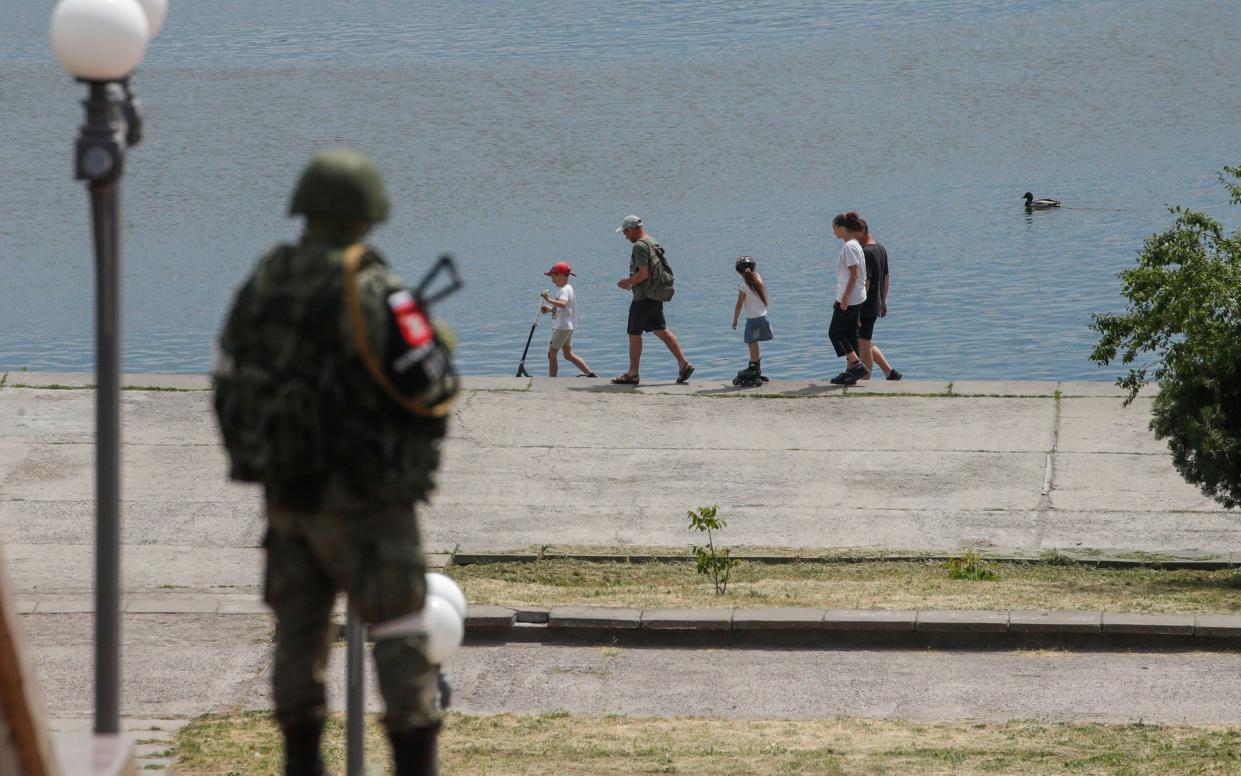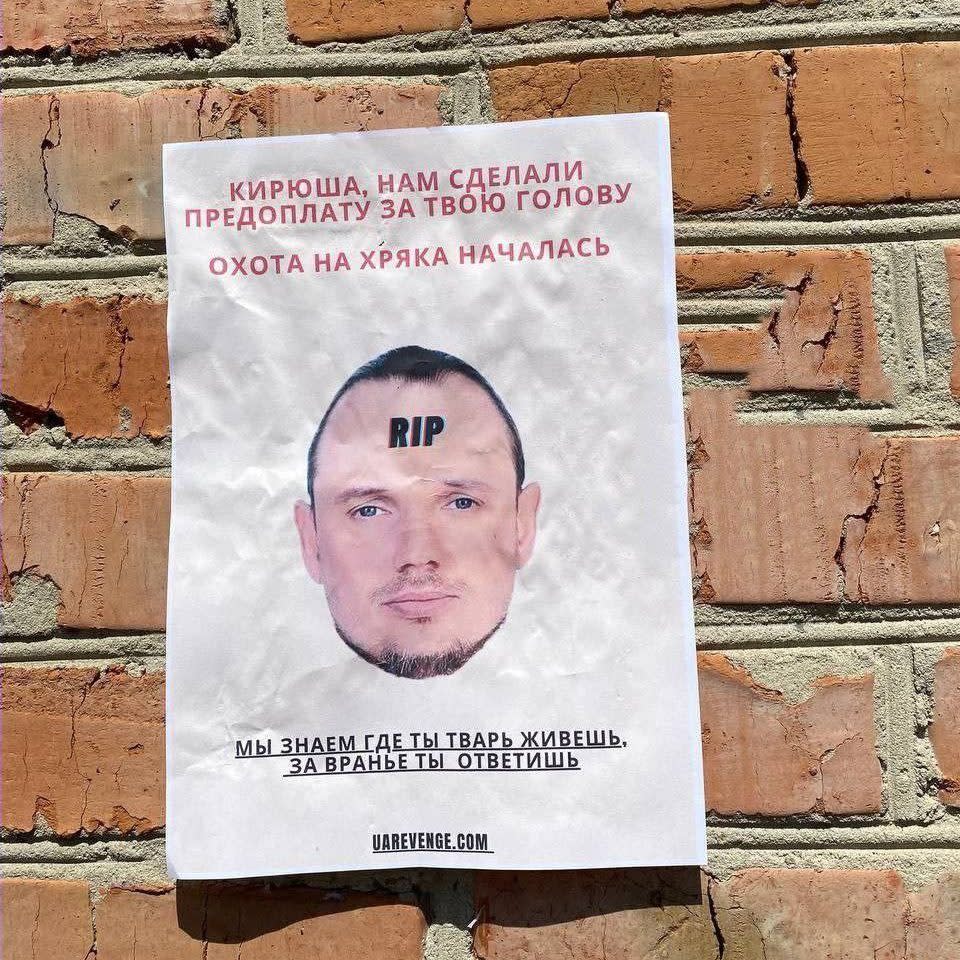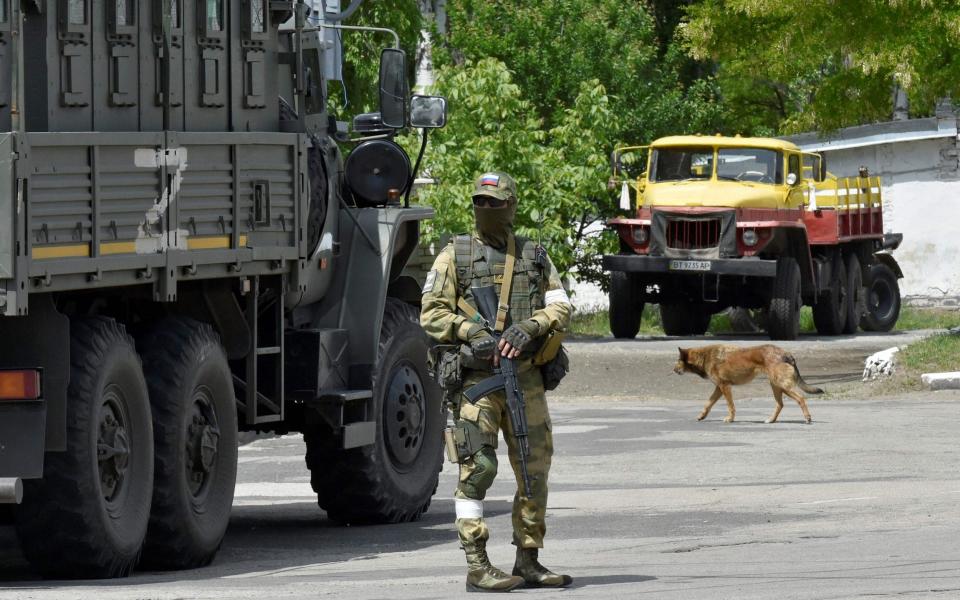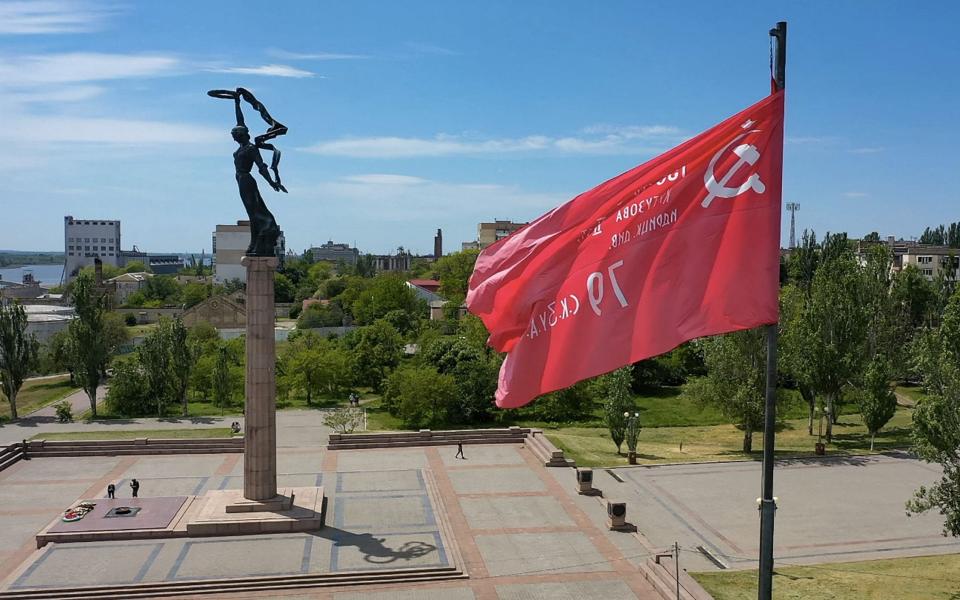Ukraine resistance blows up cafe used by Russian leaders

Ukrainian civilians living under Russian occupation have blown up a café close to the puppet government’s headquarters in the city of Kherson in what appears to be the first terror attack in occupied territories.
At least four people were injured in the explosion targeting the shop frequented by Russian soldiers, amid growing signs of a resistance movement inside the swathes of Ukraine controlled by Moscow.
Russia described the explosion as a “terror attack” on Russian-held territory in Ukraine, with a Ukrainian military official saying the café has been used by Russian leaders who have “had lunch there since the first days” of the occupation.
“Todayʼs explosion shows that the fight will not stop for a second or a minute. Kherson Oblast is Ukraine,” he said following the attack.
росСМИ сообщают о взрыве в Херсоне. Взрыв произошел в кафе недалеко от администрации
Видео с места происшествия в Херсоне от росСМИ pic.twitter.com/gGOvhUuwSJ— Аслан (@antiputler_news) June 7, 2022
The attack comes as the nascent resistance movement has been putting up “wanted” posters threatening local leaders of the Russian puppet regime. The posters are part of a wider counter-propaganda push, painting Russian occupiers as murderers.
The movement represents a major headache for stretched Russian resources attempting to implement permanent control over new territory, and could spell the beginning of a long underground campaign against occupiers.
Russia has ruled Kherson with an iron fist for months, launching a deadly campaign to bring the city under its total influence, and it represents by far one of their biggest gains made in the war.
But Ukraine’s resistance movement in the occupied territories has grown rapidly in recent weeks. It is said to be coordinated by the Special Operations Forces (SSO), a unit of Ukraine’s armed forces.
Work is reportedly split into three sections: military action, support operations and psychological warfare. The source inside told The Economist that they have spent time preparing “simple local people” for action.
Last week a car bomb blast in the port city of Mariupol injured three people in what was believed to be the first major act of guerilla warfare against Russian collaborators.
The resistance movement has perturbed the occupying forces in Kherson, locals have claimed, resulting in a renewed crackdown on dissent.
One man, who wished to remain anonymous, told The Telegraph that he was recently detained for three days, beaten, verbally assaulted and forced to make a propaganda video renouncing his role in the territorial defence forces.
His neighbour described the moment she saw him snatched off the street in broad daylight by a group of armed men.
“It happened very quickly and unexpectedly. They dragged him by the hands into the car and took him away,” Nastya, 18, said. “I felt fear for him, what will be done with him and whether he will remain alive at all.
“He didn’t resist because at the moment in our city resistance or disagreement can end badly. Kidnappings happen very often. They kidnap people who go to rallies, volunteers or fighters from the territorial defence.”
It is thought that Russian forces are holding hundreds of people in similar detainments in the Kherson region.
“There are about 600 people in Kherson Oblast who are confined to basements, in specially equipped rooms, in torture chambers,” Tamila Tasheva, permanent representative of the president of Ukraine in the Autonomous Republic of Crimea, said on Tuesday.
Those detained include activists, local journalists and prisoners of war and many have been taken by Russian forces to Crimea, she added.
Across Kherson, resistance posters have been taped to buildings and street signs. Nastya said it is impossible to walk down the street without seeing at least one. “They are everywhere,” she said. “It gives us hope.”

“We will find every scum that has tortured our people in basements, fired rockets or directed artillery strikes. There will never be peace for you here. Death to the occupiers,” read one, alongside an image depicting the skeleton of a soldier.
Another aimed at Russian soldiers said “death awaits” them and that “Kherson is Ukraine”.
Others showed a map of Russia with the caption “The Russian passport isolates you from the world”, seemingly referring to an announcement by the Russian-appointed leader of Kherson Oblast that all residents in the region can now apply for Russian citizenship.
‘Draconian’ measures to maintain control


Russian troops have reportedly been authorised to shoot civilians and destroy vehicles near checkpoints in Kherson Oblast, the Ukrainian Southern Operational Command has claimed.
They say it indicates a growing fear of Ukrainian resistance in the region and reflects the increasingly draconian measures introduced to maintain control.
The Kremlin has moved to erode Ukrainian identity, for example by introducing Russian school curriculum, the Russian rouble and Russian flags, hoping to make Kherson the blueprint for its longer-term aims in occupied Ukraine.
Nastya said the situation is “always tense” and that Kherson’s population are “always under control”.
“Here you are like a pawn, you are controlled as they want,” she said.
Locals have described dire living conditions in the area, where food and medicine supplies are dwindling.
Elizabeth Bachuriina, a resident of a nearby village, said “every day it only gets worse and worse” and that the Russians “live among us”.
Russia’s grip on Kherson is also being challenged by military gains in the region. Ukrainian forces have made territorial advancements, military analysts have said, forcing Russia to redistribute its stoops away from Zaporizhzhia towards the region to reinforce damaged troops.


